If your car revs while breaking, you should be concerned. While there are many reasons to fix this issue, we have asked automobile experts for the best possible solutions. Here's what they replied.
If a car revs when braking, it usually has a leak in the brake booster. Once the brake booster starts to leak, the pedal pressure increases, and the power of the master cylinder reduces. To stop your car from revving, you need to repair or replace the brake booster.
There are different other ways to stop your car from revving when breaking. Continue reading to understand what car revving means and the different ways you can fix it.
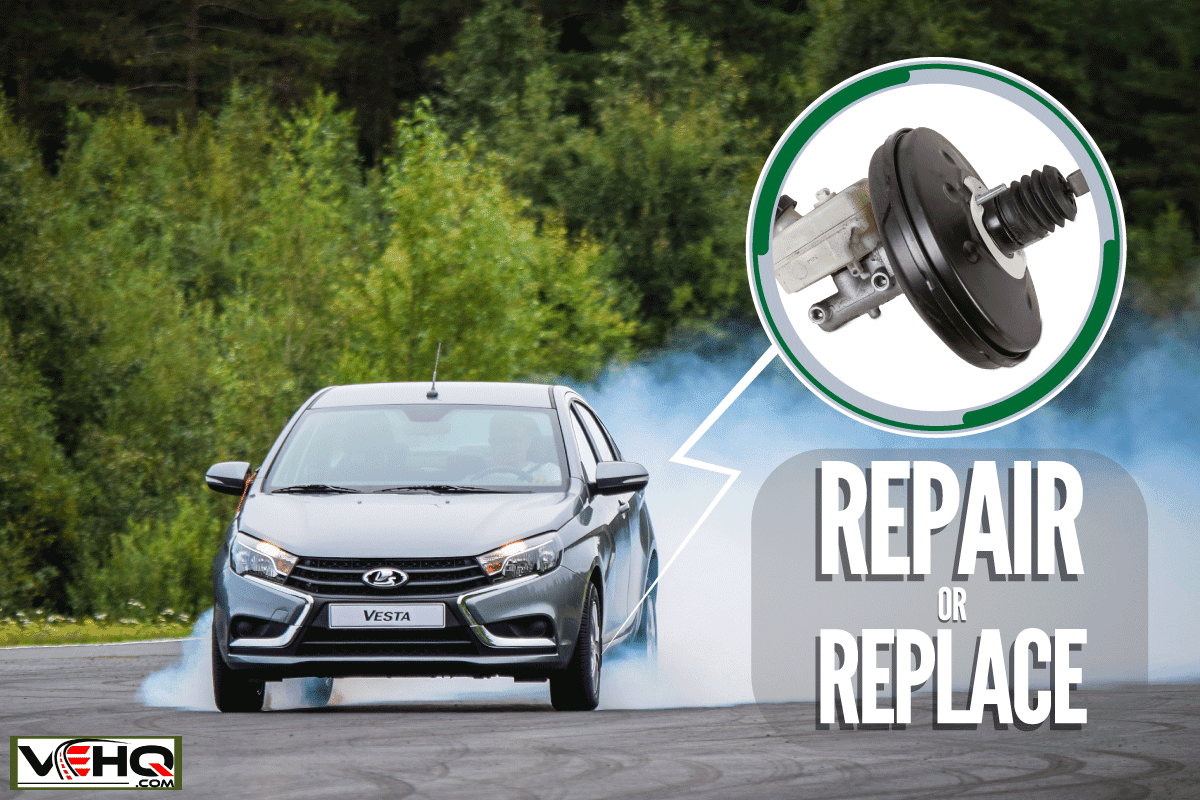
What Does a Car "Rev" Mean?
Most automobiles or machines rev when there are Internal issues related to their engine that need to be looked into and solved as soon as possible. A car that revs will make loud noises when the acceleration is suddenly increased after the brake is applied. The higher the pressure applied, the higher the car revving volume.
During braking, if the car break panel does not work smoothly, it will exert more pressure on the break and leave the car to eventually rev.
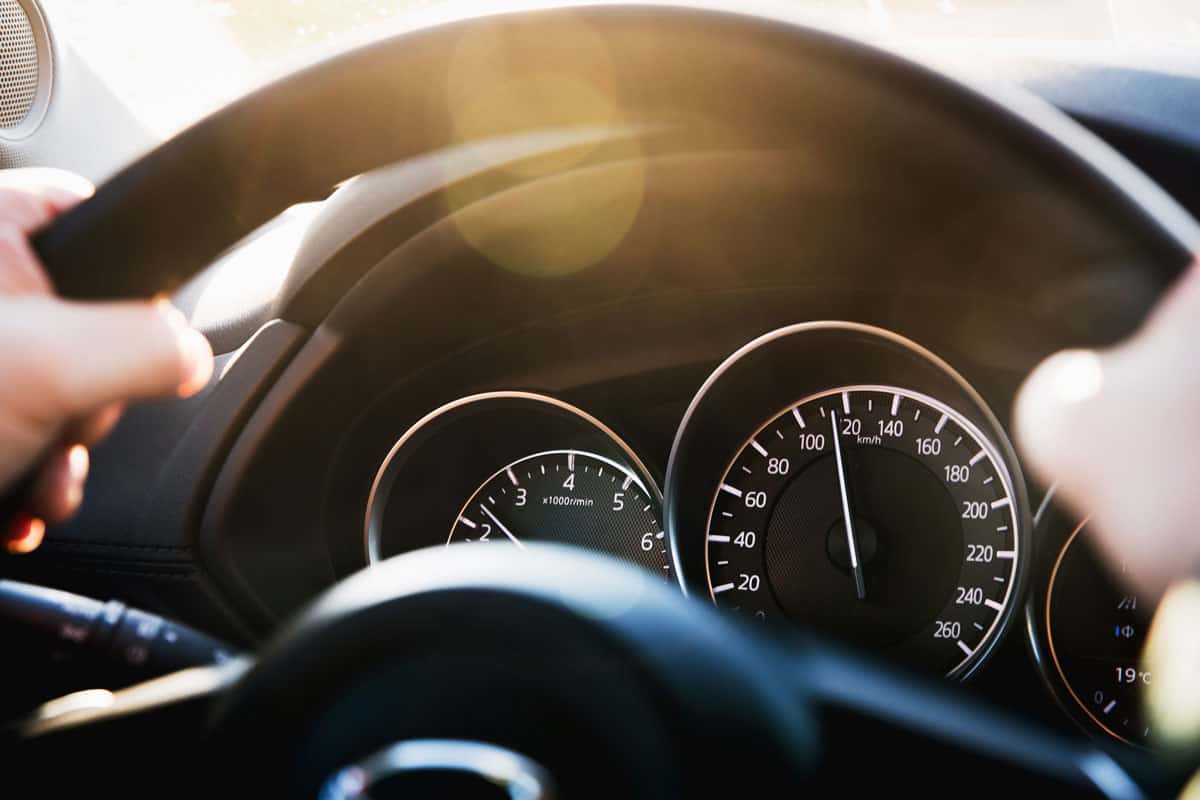
Reasons Car Revs When Breaking
There are several reasons the engine of a car revs, and they are as follows:
The Brake Booster is Leaking
The brake booster is the part of the engine that works with the master cylinder to exert more pressure on the break. Hence, reducing the pressure to be exerted by the driver. If the brake booster starts leaking, it might not have the ability to exert the same pressure as when it is fully active.
Ineffectiveness of The Break Master Cylinder
As explained, the brake booster and brake master cylinder work hand-in-hand. Alternatively, if the brake booster is working and the master cylinder is not working, both will be inactive. The driver has to exert a lot of pressure on the brake panel, which will result in revving.
Inconsistent Throttle
If your car's throttle is faulty, it might result in revving while braking. Whenever you press your brake panel and release your leg, a bad throttle might not return faster or even hang. Hence, the engine keeps working, resulting in revving.
Bad Oxygen Sensor
The oxygen sensor is the part of the engine that detects the ratio of air/gas to fuel the engine. A terrible oxygen sensor is another reason cars rev when a brake is applied.
This is because when the break is suddenly applied, the oxygen sensor will misinterpret the proper gauge of the air to fuel. Hence, it causes the engine to rev and sometimes emit incombustible carbon as smoke.
How To Stop Car From Revving While Braking
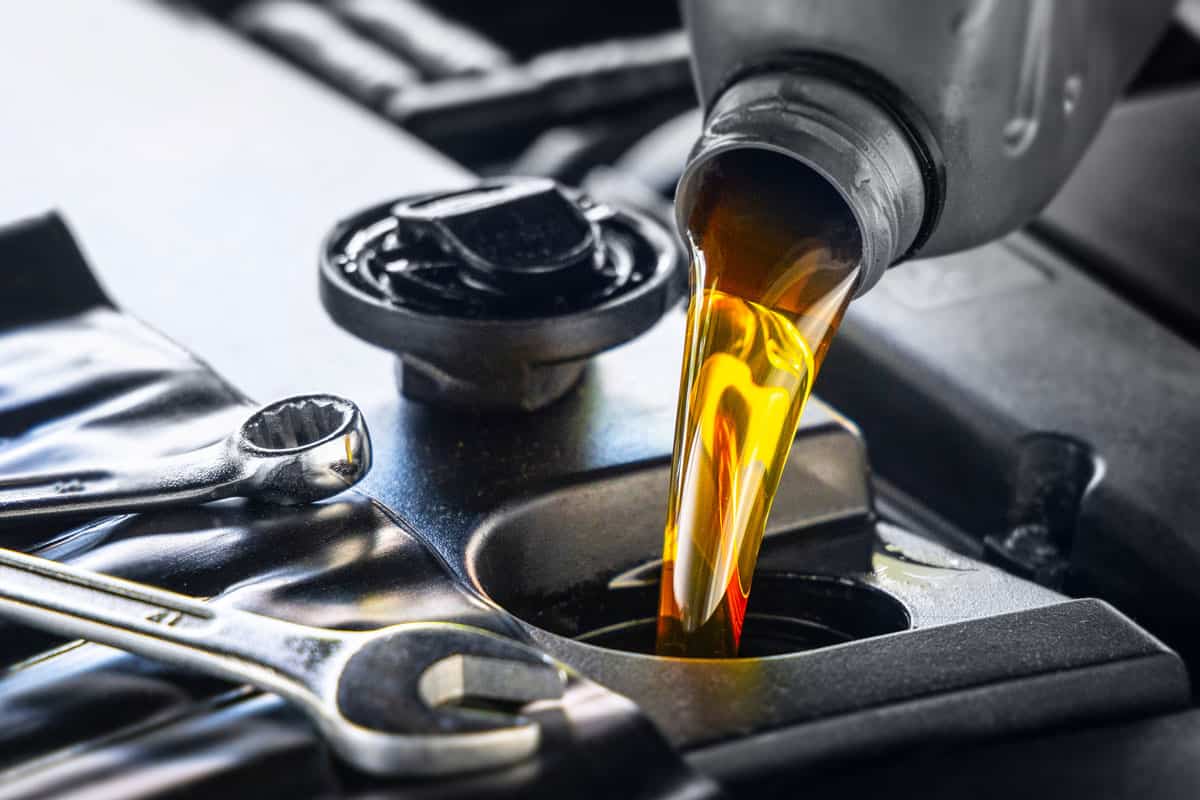
The engine RPM increases during revving. There are ways to control this temporarily. Eventually, you will still have to take your cars to automobile shops for more permanent repairs.
Firstly, identify the main reason your car revs when braking. If you can't identify the reason, an inspection by an auto technician can help. Follow these steps if the problem is the brake booster leaking, which will involve changing the brake booster:
- Get the professional tools ready: screwdrivers, wrenches of different sizes, and a new check valve used for opening up and repairing the brake booster.
- Turn off the car's engine.
- Press the brake pad to eject the brake fluid system.
- Remove the vacuum line, after which you identify the check valve.
- Remove the clamps around it and then replace the old valve with the new valve. Instead of replacing the whole brake booster, check out the 'check valve' first.
- Try to restart the car and use the break. If the problem reoccurs, continue to the next step.
- Locate the brain booster behind the firewall of the master cylinder.
- Separate the vacuum line from the clamps.
- Replace the leaking brake booster with a new one.
- Fix it with the rubber hose in the right spot. Return the clamps and vacuum.
- Then you are done with the the the issues of replacing the brake booster. If you think you have the skills to successfully replace it, then do that. To stay on the safer side, hire an automobile expert for help.
Bad Brake Master Cylinder
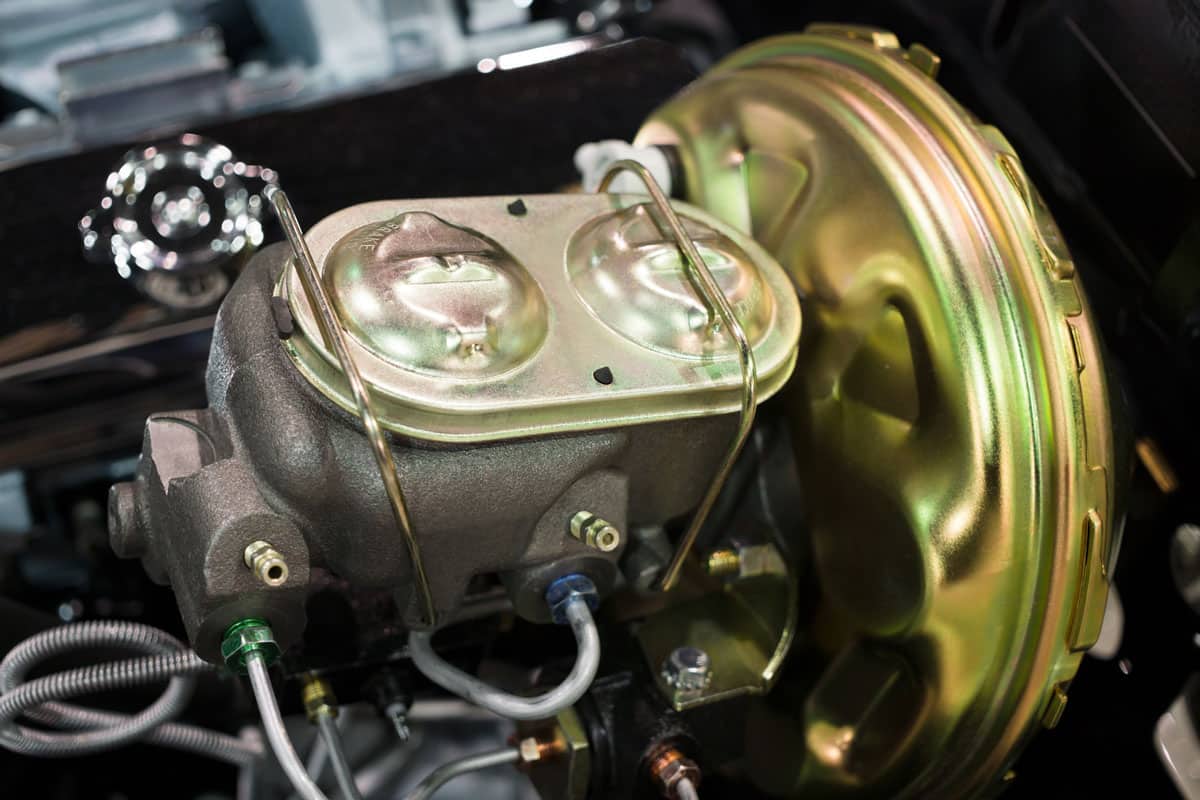
The brake cylinder is at the front of the brake booster. They work together to ensure sufficient pressure is applied during the break. Hence, reducing the amount of pressure to be expected by the driver.
It works hand-in-hand with the brake booster to ensure that halting your car will become easier with the break. However, it does degrade, too, with time. Like a brake booster, a bad one can also cause your car to rev.
How To Fix a Bad Brake Master Cylinder
If the reason for your car rev is the ineffectiveness of the master cylinder, here are the steps to fix it:
- Locate the brake master cylinder in your car at the fore of the brake booster and below the brake fluid.
- The master cylinder and brake fluid should be disconnected from all attaching components with the required tools, spanner, and wench. So that all the wires connected around it will be removed.
- After removing the wires and cables at the ports, replace them with the new brake master cylinder.
- Connect all cables and other components back to the master cylinder - including driving the nuts back to the brake booster and brake lines.
- Seep the master cylinder to get all of the exhausted air.
It's essential to change your brake master as soon as you find any sign that it's not working appropriately. This is very important to ensure your safety on the road; these are some of the signs that show your car's master cylinder is bad:
- The brake pedal is behaving inappropriately
- The car engine revs
- Contamination of brake fluid
- Break fluid leak
- Hardening of your break
How Much Does It Cost to Replace a Brake Booster?
Prices differ based on some factors, but the average price to replace a brake booster is about $325-$1,250. These factors include the type of vehicle you own and the utility of labor. The value of your car plays a huge role in the cost of replacing the brake booster.
Also, if you are not replacing the brake booster yourself, the cost of hiring a mechanic or automobile expert is about $100-$200. It is advisable to reach out to experts in the field of automobiles to help you replace the brake booster even though you can do it yourself.
What Causes Over Revving?
Cars nowadays usually do not make loud sounds when breaks are applied except if there are issues from the internal parts. Over-revving is a sign that there is an emergency to attend to in the engine. This can also be due to an air leak or a stabiliser not working correctly in the internal part of the car.
Also, it might be due to transmission failure or slow response in your car. Therefore, any car that revs for a very long time most likely needs urgent attention.
If you are using an old car, and your car revs continuously; it might be due to an engine malfunction or other internal issues resulting from old parts. Even if you repair the engine, the problem might still persist over time.
Does High Revs Damage Engine?
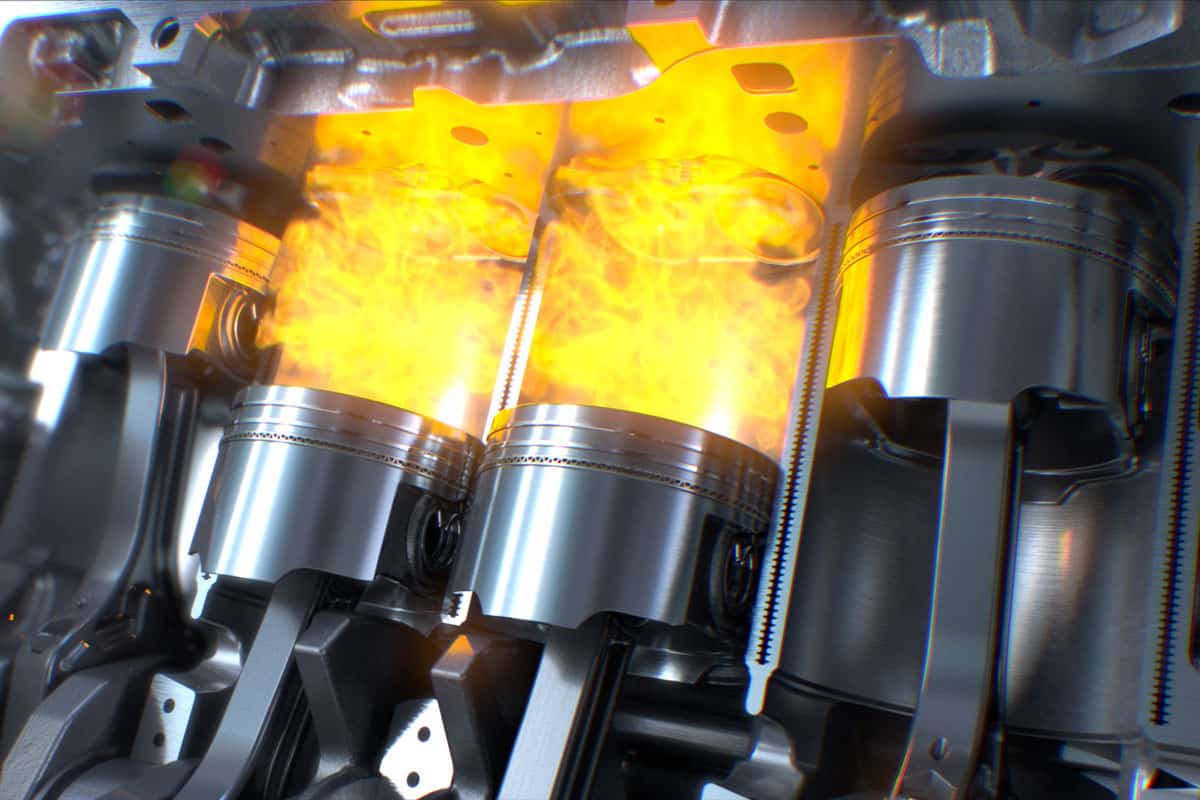
High revs can damage your car's engine. They can harm the ion in the internal part of your car. The engine, after a very high rev, is already too stressed, this reduces the availability of air around the engine. Also, it can limit oil transmission from one system to another, which is equivalent to an engine knock.
The engine becomes hotter when the car rev because the RPM has excessively increased on a physical level.
Alternatively, it would help to avoid slow acceleration except when driving uphill. Even at this, the gear should be changed to the low level to balance it; else, applying the break might result in another rev.
Conclusion
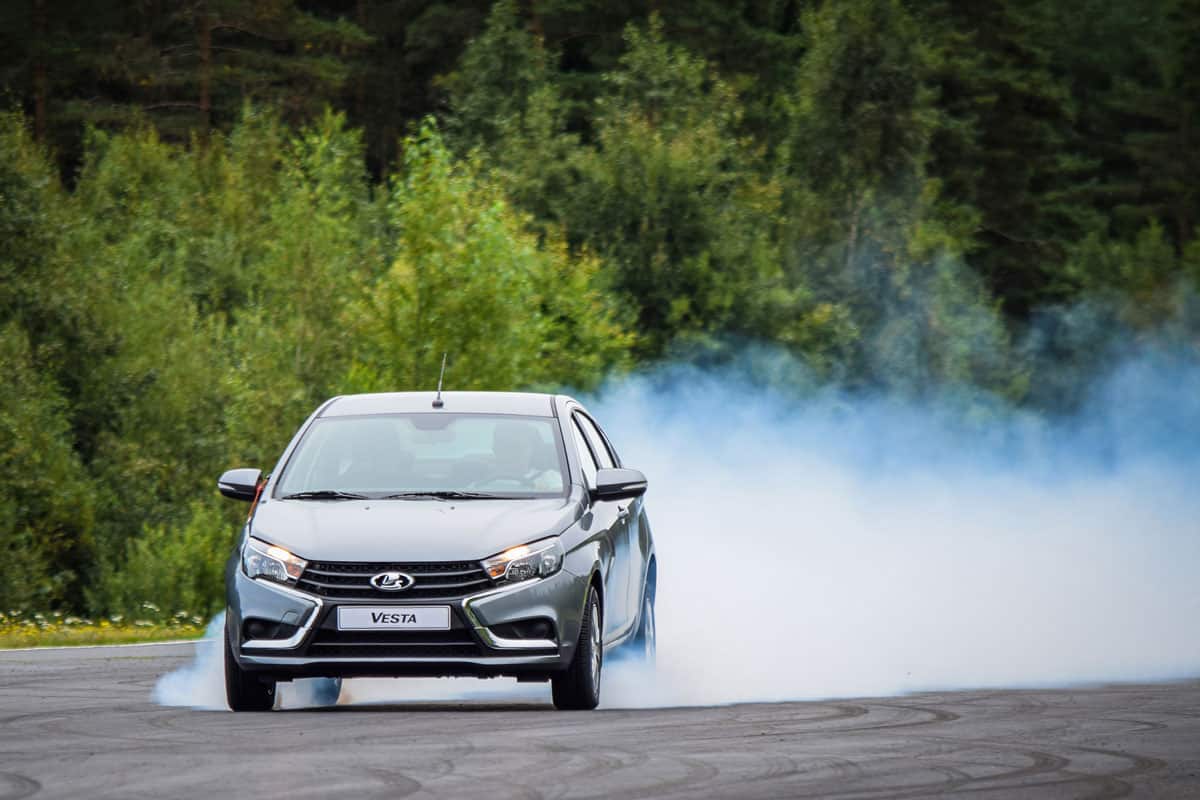
A car that revs during breaking should be inspected by a professional as soon as possible. Apart from the engine, other inner parts should be looked into, especially if your car is older. One of the well-known reasons cars rev is the leaking of the brake booster. Hence, maintain your brake booster and replace them as soon as you notice any faults.
For more articles about car revving issues, check out these articles:
